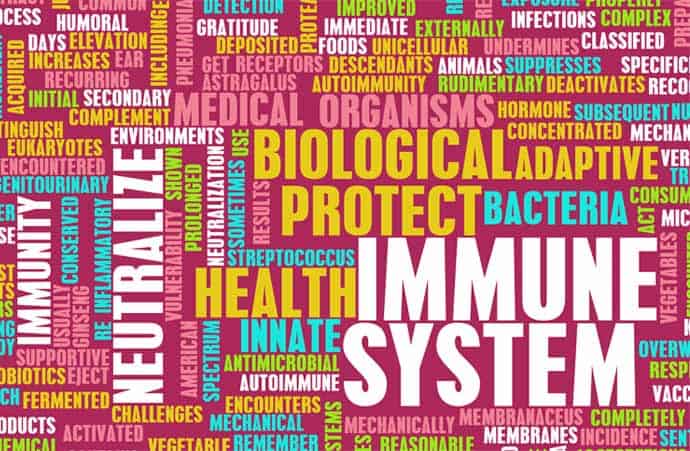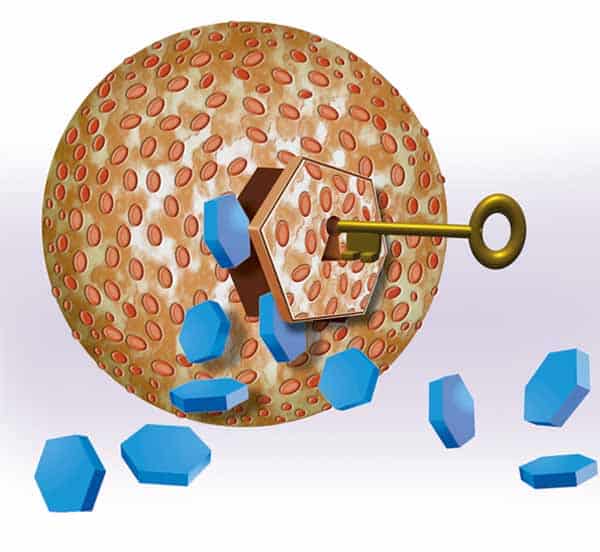
While diabetes is not a disease that you can see on the outside of those that have it, inside their bodies they are silently fighting a war against one of their own.
This battle is known as insulin resistance.
Insulin resistance is one of the telltale signs of prediabetes and type 2 diabetes. Why the bodies of some are unable to respond to insulin properly, is still a bit of a mystery.
But there are some ways to enable the body to become more receptive to the insulin being produced.
Contents
Building up Resistance
 For those without diabetes or even insulin resistance, when they eat their typical meal, their blood sugar levels will begin to rise.
For those without diabetes or even insulin resistance, when they eat their typical meal, their blood sugar levels will begin to rise.
This process then signals the pancreas to begin producing insulin. Insulin then travels in the body and works to induce the muscle cells and fat to absorb any extra glucose from the bloodstream, to be used as energy.
When the cells take in the glucose, the blood sugar levels will begin to lower and eventually balance out to a normal level. Insulin also sends a signal to the liver, which works as the glucose repository in the body to store glucose for use later.
But those with insulin resistance have a tolerance built up to insulin, which makes it less effective when released. This means that more insulin is required to take induce the muscle and fat cells to take in the glucose and to signal the liver to store some for later.
I recommend reading the following articles:
Because of an insulin resistance in the body, the pancreas begins to produce much larger amounts of insulin to help energize the cells and return blood sugar levels to normal.
This is the reason why those with type 2 diabetes have much higher levels of insulin in their body. Because the pancreas has the ability to increase insulin production, the beginning stage of insulin resistance will not exhibit or produce any symptoms right away. But eventually over time, it progressively get much worse, and the beta cells in the pancreas that produce insulin will begin to wear out.
The final result of insulin resistance on the body is that the pancreas will no longer have the ability to produce enough insulin to help overcome the resistance in the body’s cells. This will lead to much higher blood sugar levels and type 2 diabetes.
While many people, when they think of insulin, only think of it’s ability to lower blood sugar levels, it does have many other roles within the body. The health effects of an insulin resistance in the body go well beyond that of just type 2 diabetes.
Research has shown that insulin resistance over time can increase one’s risk to develop heart disease, independent of diabetes completely.
The Development of Insulin Resistance
We are beginning to have a much better understanding of how insulin resistance starts. First, there is a genetic component to it. Older individuals are also have an increased risk of developing insulin resistance.
Lifestyle also plays a role, as those who live a more sedentary lifestyle and suffer from obesity can also have an increased risk of developing insulin resistance.
Why is this?
It’s not really clear right now, but there are some theories that extra fat in the body causes an increase inflammation, physiological stress and other cellular changes that contribute to insulin resistance developing.
Currently, doctors don’t test for insulin resistance in a typical checkup. But in the clinical research side of things, scientists are beginning to look at the measure of insulin resistance as a way to discover potential treatments for it as well as type 2 diabetes.
What they typically do is to give those with insulin resistance larger amounts of insulin while at the same time introducing glucose into the body to ensure blood sugar levels do not go too low. The less amount of glucose that is needed to keep blood sugar levels within a normal range, the much greater level of insulin resistance there is.
What has been found is that insulin resistance comes in a variety of degrees, it’s not the same for everyone.
Those with type 2 diabetes suffer from bigger, more important health implications. The more resistant to insulin someone with type 2 is, the much more difficult it is to manage their blood sugar control. This is because more medication will be required to help get enough insulin so that they can achieve their target levels.
Counterattack of Insulin Resistance
While it’s not entirely possibly to defeat insulin resistance in the body, there are still ways to make the cells in the body become more receptive to the insulin it is getting.
Getting up and becoming more active is one of the best ways.
Exercise can reduce insulin resistance in terms of both short periods and long term. Physical activity can make the body more sensitive to the insulin being produced by the building of muscles which can absorb additional glucose in the blood.
It also opens up a way for the glucose in the bloodstream to enter the cells within the muscles without having insulin be the intermediary for this. Because of this, the dependence the cells have on insulin to get energy will be greatly reduced. This doesn’t entirely reduce insulin resistance but it does help those who are resistance to insulin improve their blood sugar control.
Weight loss is another method of reducing insulin resistance. There isn’t one specific diet that has been proven to be the most effective in doing so, but some evidence has shown that eating low fat and high carbohydrate foods can actually increase your body’s insulin resistance.
Wrap-Up
Medications such as metformin and thiazolidinediones, are known as insulin sensitizers that can help to reduce blood sugar levels. They are in part helping to reduce the insulin resistance in the body.
Further reading:
Together in collaboration with the other methods described above, can help to greatly increase your body’s ability to utilize the insulin being produced effectively. While it may seem that fighting an adversary who is invisible is impossible, there are many effective ways to fight back and combat your body’s resistance to insulin.
Losing weight, increasing physical activity and properly taking your medications are a way to help your body achieve better blood sugar control. If you have any comments or stories to share post them down below.
TheDiabetesCouncil Article | Reviewed by Dr. Sergii Vasyliuk MD on May 28, 2020






